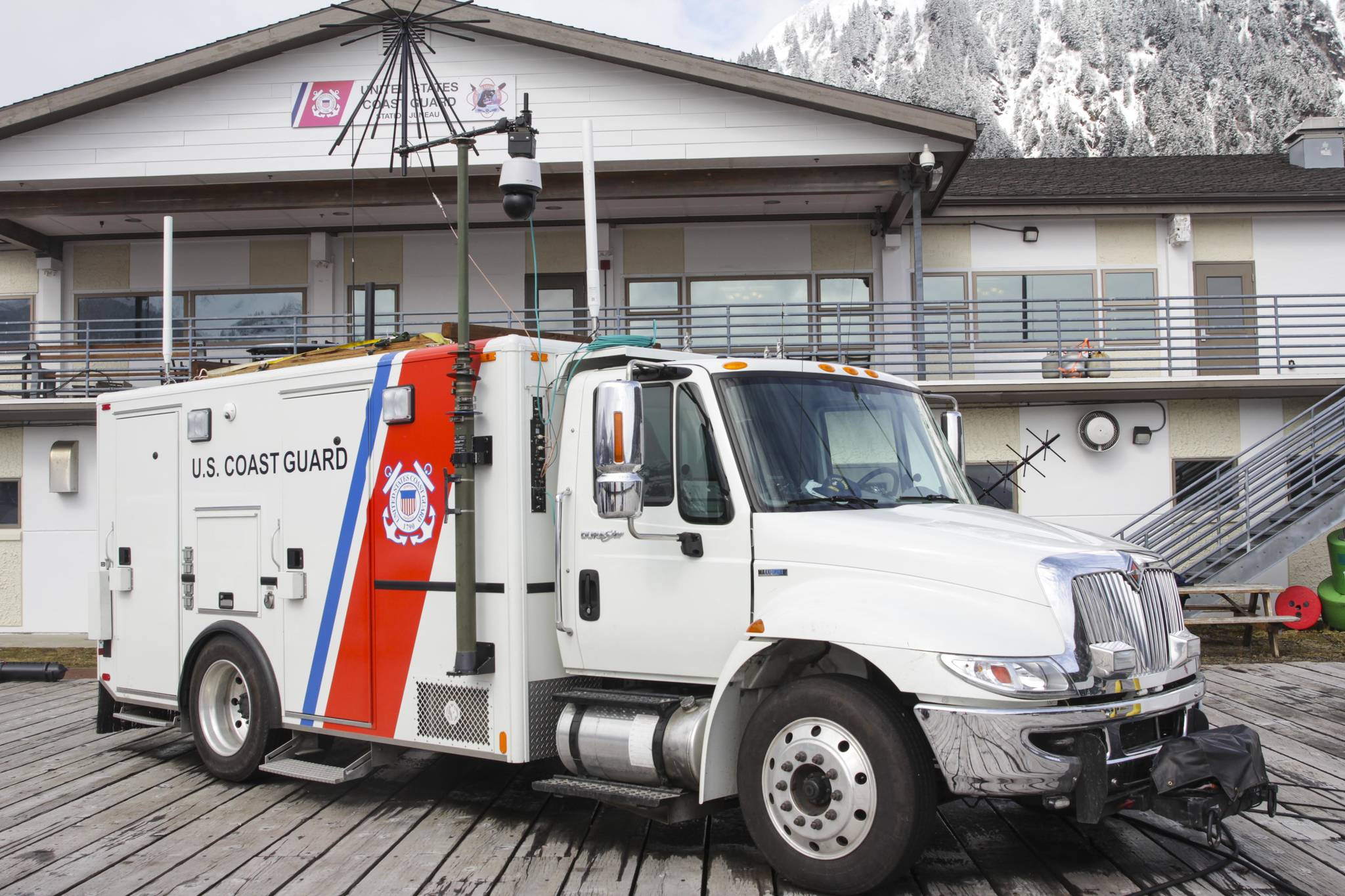In a crisis, one of the absolutely most important things to have is communications.
So what happens if you lose power or the ability to transmit?
If you’re the Coast Guard, you fly in a 13-ton truck full of radios — a mobile communications vehicle, known in shorthand as the MCV, and improvise the capability. Coast Guard Station Juneau hosted the MCV this week as Coast Guard District 17 leadership held a continuity of operations exercise simulating loss of all communications, including landlines and other hardwired communication.
“This is a command center in a box,” said Coast Guard Communication Command commanding officer Cmdr. Vince Taylor in an interview. “If anything at the district or sector command goes down, this can restore it.”
The MCV is capable of transmitting in UHF, VHF, HF, as well as with satellite communications for both classified and unclassified voice and data transmission, Taylor said, making it possible for a district or sector to fulfill all of the Coast Guard’s missions no matter the circumstances.
“Coast Guard operations are challenging,” Taylor said. “Communications shouldn’t be.”
The MCV is capable of completely standing in for a district with downed communications, and has done so for a number of Coast Guard-specific as well as interagency operations in disasters such as hurricanes, wildfires, and other disasters.
The exercise went well,” said Chief Warrant Officer 2 David LeBrecht in an email. “Crews from the 17th district and Sector Juneau exercised their ability to continue operations in the event their primary locations in the Juneau Federal Building became unsuitable, whether it be as a result of a fire or other natural disaster.”
The exercise was a good chance for Communications Command to work with District 17, Taylor said.
“I’m really excited we have the opportunity to support District 17,” Taylor said. “This was the first time we had the opportunity to put it on the C-130 and fly up here for many years.”
The vehicle weighs about 26,000 pounds and is capable of fitting in a C-130, which is how this one arrived in Juneau, Taylor said. The C-130 is currently the largest cargo aircraft in the Coast Guard’s inventory, and the MCV’s ability to fit aboard one means that they can be on the ground anywhere in the world within 24 hours, Taylor said. Powered by an onboard generator, the MCV has enough onboard fuel reserves to operate for four days.
• Contact reporter Michael S. Lockett at 757-621-1197 or mlockett@juneauempire.com.

